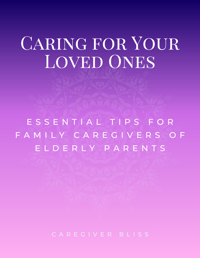Choosing Between Treatment and Hospice Care for Elderly Parents

As our loved ones age, we are often faced with difficult decisions regarding their healthcare. One of the most challenging choices is determining whether to pursue aggressive medical treatment or opt for hospice care.
This decision can be emotionally overwhelming, but it's essential to make an informed choice that respects your elderly parent’s wishes and provides the best possible care. In this article, we'll discuss how to choose between treatment and hospice for elderly parents and when the right time might be.
Understanding Treatment and Hospice
Before delving into the decision-making process, it's essential to understand what treatment and hospice care entail:
- Medical Treatment: Medical treatment involves interventions aimed at curing or managing a specific health condition. It may include surgeries, medications, chemotherapy, or other medical procedures. The primary goal is to extend life or improve the quality of life.
- Hospice Care: Hospice care, on the other hand, is a specialized form of care designed for those with a terminal illness. It focuses on providing comfort, pain management, and emotional support rather than aggressive treatments. The main aim is to enhance the patient's quality of life in their final months.
Key Factors to Consider
Choosing between treatment and hospice for elderly parents is a highly personal decision. Several factors should be taken into account to make the best choice:
- Diagnosis and Prognosis: Consult with medical professionals to fully understand your parent's diagnosis and prognosis. In some cases, treatment might be a viable option if there's a reasonable chance of improvement. For terminal illnesses, hospice care may be more appropriate.
- Quality of Life: Consider your parent's current quality of life and how different treatment options might affect it. If aggressive treatment will likely result in a diminished quality of life, hospice care may be a better choice to provide comfort and relief from pain.
- Personal Wishes: Engage in open and honest conversations with your parents about their preferences. They should have the opportunity to express their wishes regarding treatment and end-of-life care. Respecting their choices is crucial.
- Potential Benefits vs. Risks: Weigh the potential benefits of treatment against the associated risks and side effects. For some elderly individuals, the potential benefits might outweigh the burdens, while for others, the risks may not be worth it.
- Financial Considerations: Assess the financial implications of treatment and hospice care. Speak with insurance providers and healthcare professionals to get a clear picture of the costs involved.
Determining the Right Time
Choosing the right time to transition from treatment to hospice care, if needed, can be particularly challenging. Here are some signs to look for that may indicate it's time to consider hospice care:
- Declining Health: If your parent's health is steadily deteriorating despite aggressive treatment, it may be an appropriate time to consider hospice.
- Multiple Hospitalizations: Frequent trips to the hospital can be physically and emotionally taxing. If your parent is continually in and out of the hospital, hospice may offer a more comfortable and stable environment.
- Pain and Discomfort: If your loved one is experiencing unmanageable pain or severe discomfort from their illness or treatments, hospice can focus on pain management and providing comfort.
- Discuss with Healthcare Providers: Consult your parent's healthcare team for their professional opinion. They can help guide you in making the right decision based on your parent's specific circumstances.
Conclusion
Deciding between treatment and hospice for elderly parents is one of the most challenging decisions families face. The right choice depends on individual circumstances, personal preferences, and medical considerations.
The most important thing is to ensure that your parent's wishes are respected and that they receive the best possible care tailored to their needs. Engaging in open and honest discussions with healthcare providers and your loved ones can help you make a well-informed decision that prioritizes their comfort and quality of life during their final stages of life.
We hope this article has provided you with valuable insights on a complex and emotional topic. If you have personal experiences, questions, or additional advice to share, we'd love to hear from you. Please leave your thoughts and comments below, as your input can be a source of support and guidance for others navigating similar decisions with their elderly loved ones.
Free Guide:
Caring For Your Loved Ones
 Attention family caregivers! Are you struggling to provide the best care for your aging parents? Don't worry, we've got you covered.
Attention family caregivers! Are you struggling to provide the best care for your aging parents? Don't worry, we've got you covered.
Download our free guide, Caring for Your Loved Ones: 10 Essential Tips for Family Caregivers of Elderly Parents, and unlock the secrets to becoming an exceptional caregiver.
From adapting the home environment to promoting independence, this invaluable resource will transform your caregiving experience into a more rewarding journey. Don't wait—give your loved ones the care they deserve, and download your free copy today!
